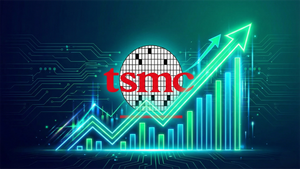Li-Cycle will Add a Fourth Spoke in Alabama as the Pace of New Battery Mega-Factory Deployment Continues to Exceed Expectations
Commercial Spoke 4 will Provide an Initial Processing Capacity Increase of up to 5,000 tonnes of Manufacturing Scrap and End-of-life Batteries per year, Bringing Li-Cycle’s North American Recycling Capacity to 25,000 tonnes per year
Li-Cycle Holdings Corp. (NYSE: LICY) (“Li-Cycle” or “the Company”), an industry leader in lithium-ion battery resource recovery and the leading lithium-ion battery recycler in North America, today announced that the Company will build a fourth commercial lithium-ion battery recycling facility, to be located in Tuscaloosa, Alabama.
With the pace of deployment of new battery mega-factories far exceeding initial expectations, Li-Cycle will construct an additional fourth Spoke in North America (“Spoke 4”). The Company previously had a base case plan for three North American Spokes (the Kingston, Ontario and Rochester, New York Spoke facilities are commercially operational; the Gilbert, Arizona Spoke facility is in advanced execution stages).
The southeastern United States is emerging as a critical region for the lithium-ion battery supply chain, as battery manufacturers and automotive OEMs establish operations in the region, which will lead to the generation of significant quantities of battery manufacturing scrap and end-of-life batteries available for recycling. Univar Solutions Inc. will be an anchor battery feed supply customer for the new facility, following on Li-Cycle’s previously announced on-site partnership with Univar Solutions to provide waste management solutions for electric vehicle and lithium-ion battery manufacturing.
When completed, Li-Cycle’s Spoke 4 facility will have an initial capacity of up to 5,000 tonnes of battery manufacturing scrap and end-of-life batteries per year, bringing Li-Cycle’s total North American recycling capacity to 25,000 tonnes per year. The Tuscaloosa site is also being developed to accommodate a future, second 5,000 tonne processing line, which would increase capacity at the Tuscaloosa site to 10,000 tonnes per year, and Li-Cycle’s total North American recycling capacity to 30,000 tonnes per year. As Li-Cycle continues to build upon its position as a leading lithium-ion battery recycler and resource recovery company, the Alabama Spoke is projected to commence operations by mid-2022 and is expected to create an initial 30+ new jobs.
The execution of Spoke 4 is strongly supported by a range of local stakeholders, including but not limited to:
- Univar Solutions and their existing automotive customer base;
- The Alabama Automotive Manufacturers Association (AAMA);
- The State of Alabama, including the Alabama Department of Commerce; and
- The Tuscaloosa County Economic Development Authority.
"Our new facility in Alabama positions us well to meet the growing demand for lithium-ion battery recycling,” said Tim Johnston, Co-founder, and Executive Chairman of Li-Cycle. “Originally, we had planned on rolling out three commercial Spoke facilities in North America over the next five years, with a total recycling capacity of 20,000 tonnes per year. However, demand for lithium-ion battery recycling has continued to outperform our forecasts and we are now forecasting total recycling capacity of 30,000 tonnes per year. This facility is essential in filling a recycling gap in the southeastern United States. Like our Arizona Spoke, we expect the new facility to have the capability to process entire vehicle battery packs, without dismantling.”
“We have a responsibility to not only manufacture vehicles and batteries, but to be good corporate citizens in the choices we make to protect our environment and the community around us,” said Michael Goebel, President and CEO, Mercedes-Benz, US International, Inc. (MBUSI), which is working together with Univar Solutions on end-of-life solutions for lithium-ion batteries. “We welcome the partnership between Univar Solutions and Li-Cycle and the strong commitment of our partners here in Tuscaloosa, Alabama to push a sustainable future for mobility.”
"At Univar Solutions, we’re committed to bringing more sustainable solutions for a better world, leveraging our expertise to help our customers and suppliers make progress toward their sustainability goals. We are thrilled to work together with industry leaders like Li-Cycle and MBUSI to make a difference in lithium-ion battery recycling," said Stephen Molica, Vice President of Services for Univar Solutions Inc. "We look forward to further assisting MBUSI with best-in-class sustainability solutions through our OnSite Services team, including supporting the addition of Li-Cycle’s new facility in Alabama."
“Li-Cycle’s decision to locate in Alabama helps position our state on the leading edge as our industry enters the era of electric vehicle production,” said Ron Davis, President of the Alabama Automotive Manufacturers Association (AAMA). “With its innovative technology and process, Li-Cycle is bringing a capability that will offer the auto industry a solution to what will become an issue of critical importance. I am very excited to see Li-Cycle's ground-breaking contributions to our growing Alabama automotive industry."
“With the popularity of electric vehicles accelerating, it’s critical that old batteries are recycled — and Li-Cycle’s technologies make that possible,” Governor Kay Ivey said. “Li-Cycle’s selection of Tuscaloosa for its network of recycling facilities means not only jobs in Alabama, but also a positive for the environment.”
“With EV production set to start in Alabama in 2022, Li-Cycle’s Tuscaloosa recycling facility will ensure that Alabama plays another important role in the lifecycle of the batteries powering electric vehicles,” said Greg Canfield, Secretary of the Alabama Department of Commerce. “This project addresses the battery repurposing proposition that must also be a part of the sustainability solution that EVs offer.”
“With a strategic focus on mobility and power, West Alabama is a prime location for Li-Cycle’s Spoke facility,” said Danielle Winningham, executive director for Tuscaloosa County Economic Development Authority. “We welcome Li-Cycle’s sustainable and environmentally friendly end-of-life solution for lithium-ion batteries, which assists meeting the demand for electric vehicle battery materials.”
About Li-Cycle Holdings Corp. (NYSE: LICY)
Li-Cycle is on a mission to leverage its innovative Spoke & Hub Technologies™ to provide a customer-centric, end-of-life solution for lithium-ion batteries, while creating a secondary supply of critical battery materials. Lithium-ion rechargeable batteries are increasingly powering our world in automotive, energy storage, consumer electronics, and other industrial and household applications. The world needs improved technology and supply chain innovations to better manage battery manufacturing waste and end-of-life batteries and to meet the rapidly growing demand for critical and scarce battery-grade raw materials through a closed-loop solution. For more information, visit https://li-cycle.com/.
CAUTION CONCERNING FORWARD-LOOKING STATEMENTS
Certain statements contained in this communication may be considered “forward-looking statements” within the meaning of the U.S. Private Securities Litigation Reform Act of 1995, Section 27A of the Securities Act of 1993, as amended, Section 21 of the Securities Exchange Act of 1934, as amended, and applicable Canadian securities laws. Forward-looking statements may generally be identified by the use of words such as “will,” “continue,” “expect,” “would,” “plan,” “projected,” “future” or other similar expressions that predict or indicate future events or trends or that are not statements of historical matters, although not all forward-looking statements contain such identifying words. These statements are based on various assumptions, whether or not identified in this communication, which Li-Cycle believe are reasonable in the circumstances. There can be no assurance that such estimates or assumptions will prove to be correct and, as a result, actual results or events may differ materially from expectations expressed in or implied by the forward-looking statements.
Forward-looking statements involve inherent risks and uncertainties, most of which are difficult to predict and many of which are beyond the control of Li-Cycle, and are not guarantees of future performance. Li-Cycle believes that these risks and uncertainties include, but are not limited to, the following: Li-Cycle’s inability to economically and efficiently source, recover and recycle lithium-ion batteries and lithium-ion battery manufacturing scrap, as well as third party black mass, and to meet the market demand for an environmentally sound, closed-loop solution for manufacturing waste and end-of-life lithium-ion batteries; Li-Cycle’s inability to successfully implement its global growth strategy, on a timely basis or at all; Li-Cycle’s inability to manage future global growth effectively; Li-Cycle’s inability to develop the Rochester Hub, Arizona Spoke, Alabama Spoke and other future projects in a timely manner or on budget or that those projects will not meet expectations with respect to their productivity or the specifications of their end products; Li-Cycle’s failure to materially increase recycling capacity and efficiency; Li-Cycle may engage in strategic transactions, including acquisitions, that could disrupt its business, cause dilution to its shareholders, reduce its financial resources, result in incurrence of debt, or prove not to be successful; one or more of Li-Cycle’s current or future facilities becoming inoperative, capacity constrained or if its operations are disrupted; additional funds required to meet Li-Cycle’s capital requirements in the future not being available to Li-Cycle on commercially reasonable terms or at all when it needs them; Li-Cycle expects to incur significant expenses and may not achieve or sustain profitability; problems with the handling of lithium-ion battery cells that result in less usage of lithium-ion batteries or affect Li-Cycle’s operations; Li-Cycle’s inability to maintain and increase feedstock supply commitments as well as securing new customers and off-take agreements; a decline in the adoption rate of EVs, or a decline in the support by governments for “green” energy technologies; decreases in benchmark prices for the metals contained in Li-Cycle’s products; changes in the volume or composition of feedstock materials processed at Li-Cycle’s facilities; the development of an alternative chemical make-up of lithium-ion batteries or battery alternatives; Li-Cycle’s revenues for the Rochester Hub are derived significantly from a single customer; Li-Cycle’s insurance may not cover all liabilities and damages; Li-Cycle’s heavy reliance on the experience and expertise of its management; Li-Cycle’s reliance on third-party consultants for its regulatory compliance; Li-Cycle’s inability to complete its recycling processes as quickly as customers may require; Li-Cycle’s inability to compete successfully; increases in income tax rates, changes in income tax laws or disagreements with tax authorities; significant variance in Li-Cycle’s operating and financial results from period to period due to fluctuations in its operating costs and other factors; fluctuations in foreign currency exchange rates which could result in declines in reported sales and net earnings; unfavourable economic conditions, such as consequences of the global COVID-19 pandemic; natural disasters, unusually adverse weather, epidemic or pandemic outbreaks, boycotts and geo-political events; failure to protect Li-Cycle’s intellectual property; Li-Cycle may be subject to intellectual property rights claims by third parties; Li-Cycle’s failure to effectively remediate the material weaknesses in its internal control over financial reporting that it has identified or if it fails to develop and maintain a proper and effective internal control over financial reporting. These and other risks and uncertainties related to Li-Cycle’s business are described in greater detail in the section entitled "Risk Factors" in its final prospectus dated August 10, 2021 filed with the Ontario Securities Commission in Canada and the Form 20-F filed with the SEC. Because of these risks, uncertainties and assumptions, readers should not place undue reliance on these forward-looking statements. Actual results could differ materially from those contained in any forward-looking statement.
View source version on businesswire.com: https://www.businesswire.com/news/home/20210908005964/en/
Contacts
Investor Relations: investors@li-cycle.com
Press: media@li-cycle.com





